Allergy & Anaphylaxis for Schools
Quantity: 1

Duration 1 hour
Last audited 29th August 2024
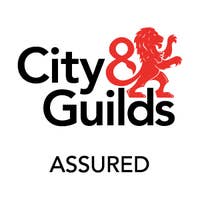
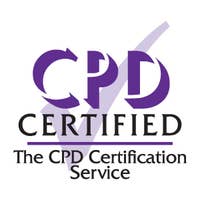
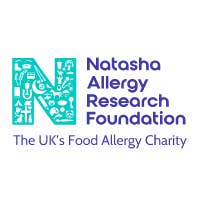

100% online training
Start when you like
Learn on any device (desktop, mobile or tablet)
Instant assessment and result
1 learner per course
Train teams of all sizes
Learn on any device (desktop, mobile or tablet)
Track learner progress with a free Management Suite
A child with allergies is at risk of having an allergic reaction at any time and this has the potential to be life-threatening. When they are at school, school staff have a responsibility to make sure that these children are kept safe and supported by minimising the risk of an allergic reaction. The best way to achieve this is by being allergy aware and knowing how to recognise, prevent and respond to allergic reactions, including anaphylaxis.
This course, created in partnership with industry experts, offers comprehensive guidance on recognising an allergic reaction, including the symptoms of both mild allergic reactions and anaphylaxis. It explains how to treat allergic reactions, providing guidance on how to administer an adrenaline auto-injector to treat anaphylaxis. It outlines the most common allergens and the risk they pose in a school setting, as well as the procedures that schools should have in place to manage allergy risks. As well as the physical impact of allergies, the course explains the effect that allergies can have on a child’s mental health.
100% online training
Access anywhere
Same day digital certificate
Full audio voiceover
Assessment retakes at no extra cost
Downloadable module recaps of key learning points
Developed by allergy experts
Helps in the duty to support pupils with medical conditions, in line with the Children and Families Act 2014.
Endorsed by The Natasha Allergy Research Foundation
City & Guilds Assured
Accredited by CPD
Earn 1 CPD point on completion
By the end of this course, you will be able to:

City & Guilds Assured
Thoroughly reviewed independently by City & Guilds learning and development experts, this course is approved as City & Guilds Assured. High Speed Training is the first e-learning provider to have online courses awarded City & Guilds Assured status.
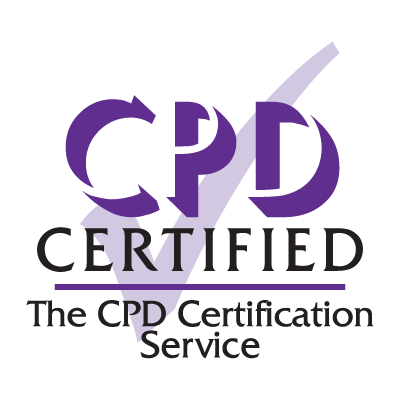
Accredited by CPD
All of our courses are accredited by the CPD Certification Service as conforming to universally accepted Continuing Professional Development (CPD) guidelines.
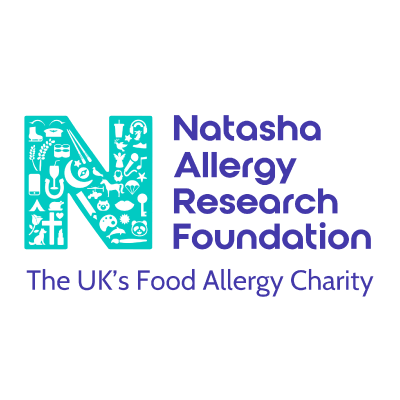
Endorsed by The Natasha Allergy Research Foundation
We’re proud to receive official endorsement from The Natasha Allergy Research Foundation. This means that this course has been reviewed and is recognised as delivering high quality training to keep people with food allergies safe.
Recommended renewal:
1 year
What does this mean? This certificate does not have an expiry date, however, based on industry best practice guidelines there is a recommended renewal period.
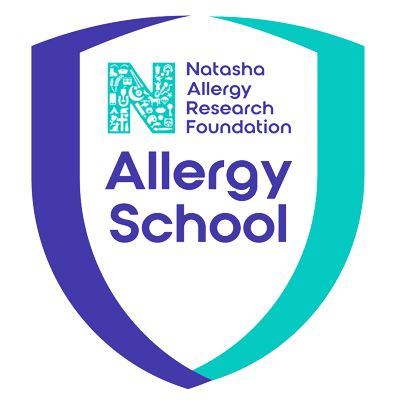
Allergy School is a new, free programme by The Natasha Allergy Research Foundation that aims to help children with food allergies feel empowered, included, and protected. Allergy School resources are free to download, including high-quality, easy-to-use films, lesson plans, and assembly packs. Find out more
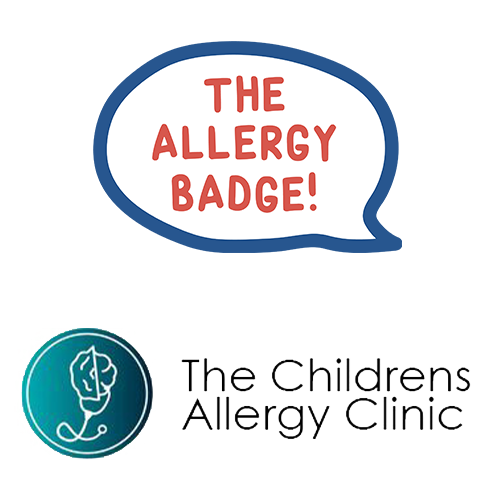
The Allergy Badge is a fully accredited training provider delivering specialist allergy training for schools, businesses, clubs, parents/carers. The medically approved training offers first hand experience covering everything from how to use an adrenaline auto-injector through to supporting the mental health and wellbeing of those with allergies.
The Children’s Allergy Clinic specialises in the diagnosis and treatment of allergies for infants and children which includes allergy consultations, allergy testing and allergy management. The Clinic delivers a wide range of allergy training and research and has a fully qualified team of experts including paediatric allergists, dietitians and immunotherapy specialists.
Our in-house Learning Designers develop all of our courses to give you and your learners the most engaging training possible.
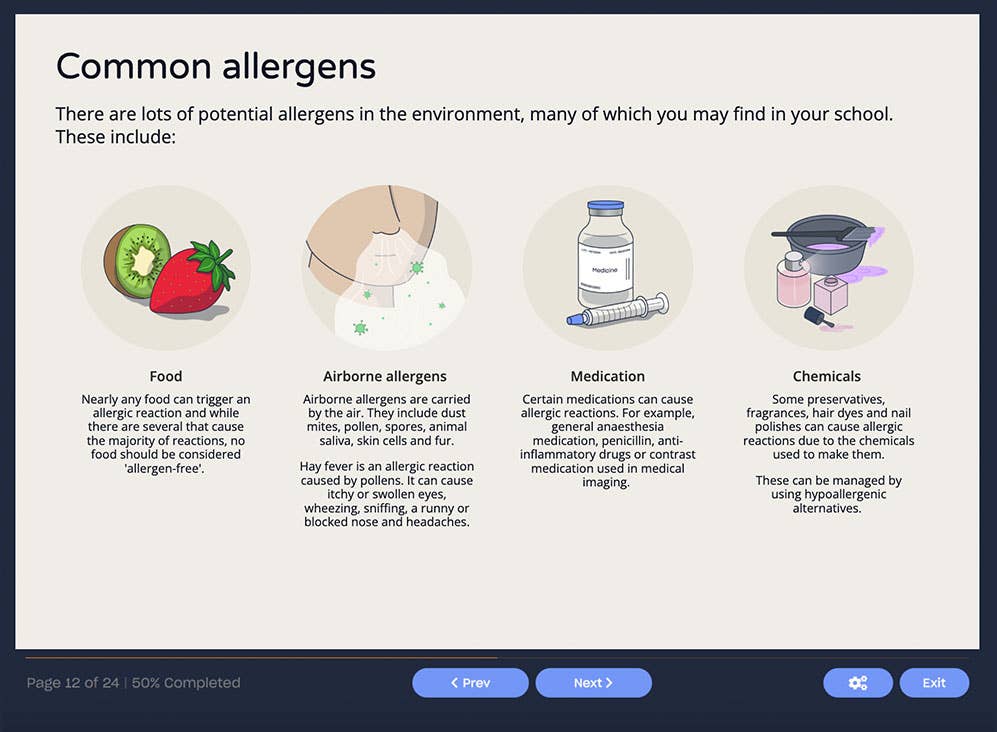
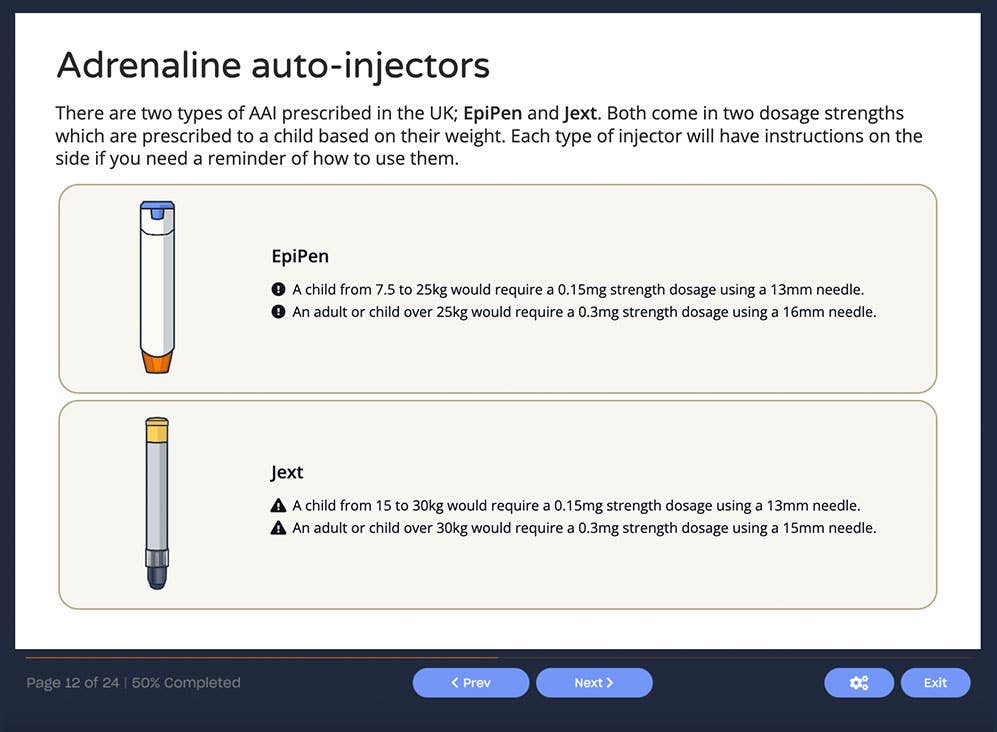
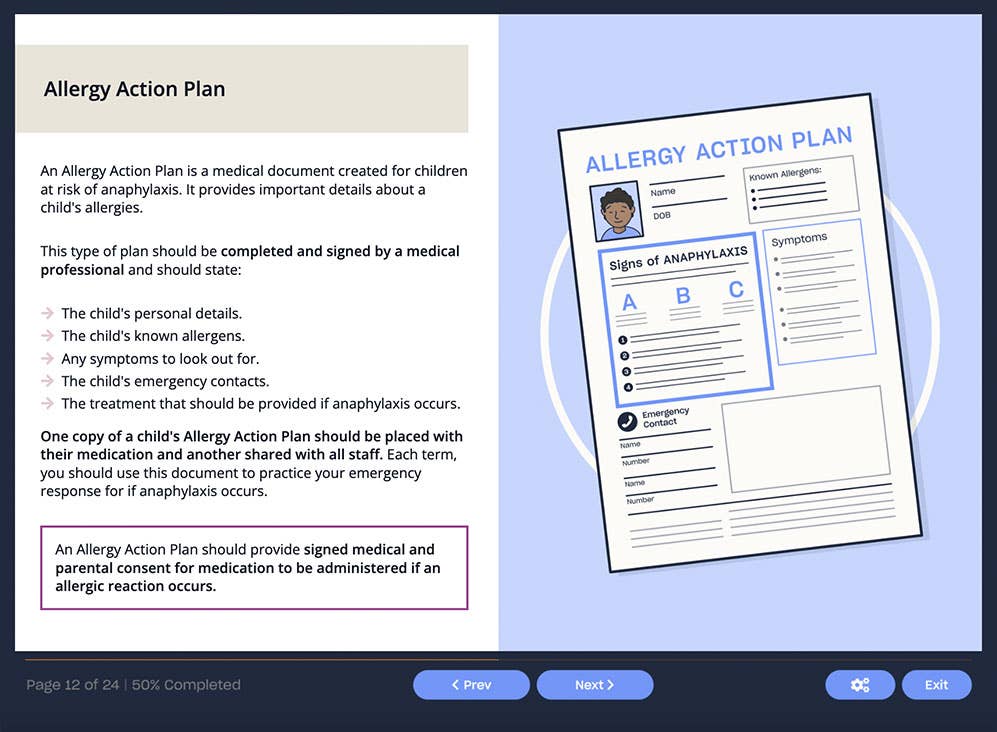
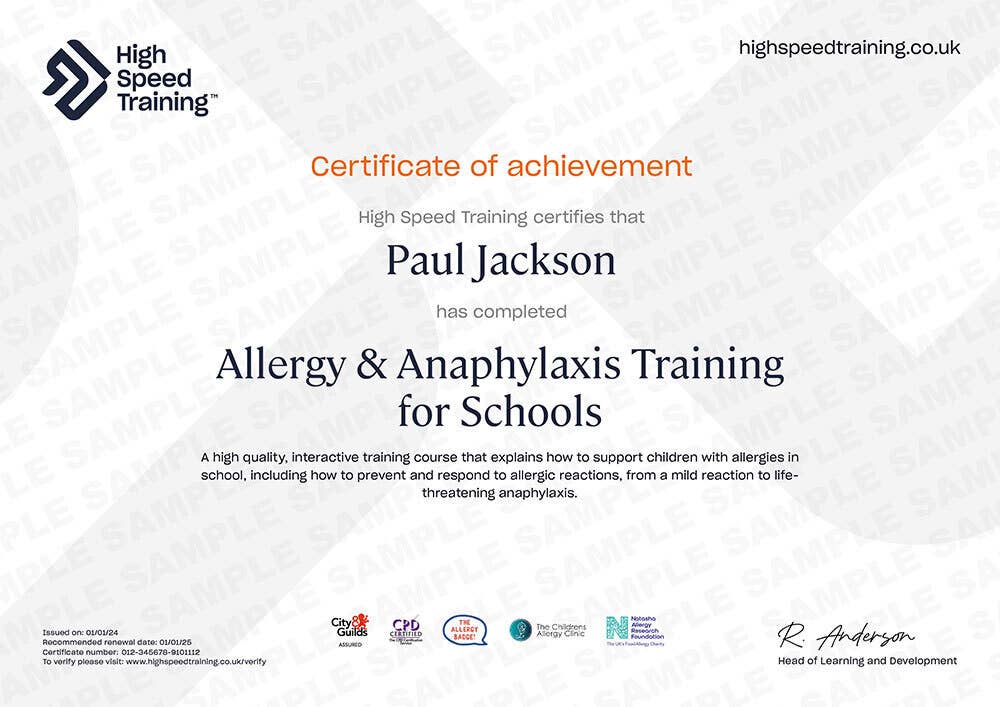




A serious allergic reaction can occur at any time when a child is at school and has the potential to be fatal. Therefore, schools and school staff have a responsibility to keep pupils with allergies safe and supported by being allergy aware and knowing how to treat a severe allergic reaction quickly and confidently.
This Allergy & Anaphylaxis Training for Schools course explains how to recognise, prevent and respond to allergic reactions, from mild reactions to anaphylaxis. It teaches you how to identify the signs and symptoms of an allergic reaction and how to treat them, including how to treat life-threatening anaphylaxis using an adrenaline auto-injector. It details the most common allergens and where they may be present in a school environment. It also explains how to manage allergy risks through your school’s allergy procedures and the impact that allergies can have on a child’s mental health.
This module introduces the topic of allergies, outlining the most common allergens and explaining the signs and symptoms of an allergic reaction, including for a mild reaction, anaphylaxis and a biphasic reaction.
This module explains how to treat allergic reactions, including how to administer adrenaline auto-injectors to treat anaphylaxis and how to correctly store allergy medication.
This module outlines how to manage allergy risks, including the precautions and procedures that schools must have in place to keep children with allergies safe. It also explains how allergies affect the mental health and wellbeing of children in school.
Once you have completed all of the online training material, you will be able to take the online assessment. The assessment consists of 15 multiple choice questions with a pass mark of 80%. The answers are marked instantly, so you will know whether you have passed as soon as you finish.
If you don’t pass the assessment, you can review the course material and take the assessment again at no extra charge.
As a member of school staff, you have a responsibility to keep all children safe and promote their wellbeing, including those with allergies. The best way to achieve this is for as many members of school staff as possible to be allergy aware and to be able to recognise and respond to allergic reactions, including life-threatening anaphylaxis, with speed and confidence. This course is suitable for primary and secondary school staff at all levels, including but not limited to:
If your role mainly involves the preparation and handling of food then our Food Allergen Awareness course is also appropriate for you.
In partnership with
Natalie Hopkins | Dr José Costa
Allergy Trainer & Founder of The Allergy Badge | Paediatric Allergy Consultant
Natalie Hopkins is a qualified first aid trainer who founded the accredited provider The Allergy Badge. She provides in-person allergy training for various organisations and also works with brands and retailers as a consultant.
Drawing from her real-life experience as a parent of a child with life-threatening allergies, Natalie is dedicated to raising awareness and educating children and staff about managing allergies safely.
Dr José Costa is a Paediatric Allergy Consultant with over 16 years of experience. He has led allergy services at Coventry & Warwickshire University Hospitals and Sherwood Forest Hospitals NHS Foundation Trust. Currently he runs clinics focusing on food allergies, hay fever, allergic rhinitis, eczema, asthma and related conditions.
Dr Costa holds a postgraduate certificate in Paediatric Allergy from Imperial College London and is an active member of key professional bodies including the British Society of Allergy and Clinical Immunology (BSACI). He also serves as an Honorary Clinical Lecturer at Warwick Medical School and is a member of the Paediatric Advisory Group for Mast Cell Action.